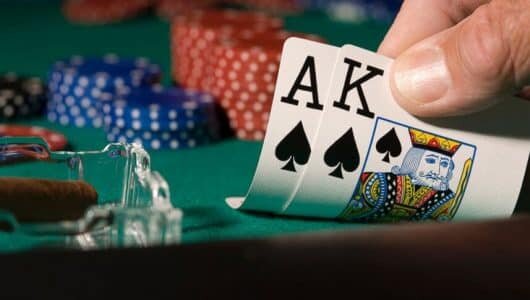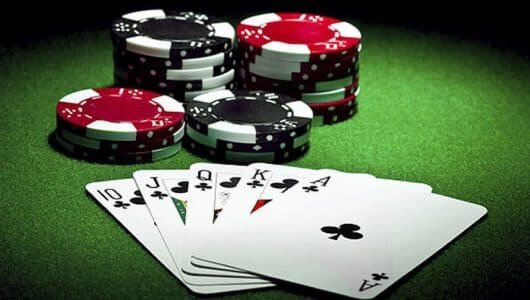7 Card Stud Poker – By Dave Tarbet
 Although surpassed in popularity by Texas Hold’em during recent years, 7 Card Stud remains a cornerstone of the home game and is still widely played in certain areas such as California or Vienna in Europe where they have the European 7 Card Stud Championship which is the biggest Stud tournament in the world.
Although surpassed in popularity by Texas Hold’em during recent years, 7 Card Stud remains a cornerstone of the home game and is still widely played in certain areas such as California or Vienna in Europe where they have the European 7 Card Stud Championship which is the biggest Stud tournament in the world.
The biggest Stud cash game in the world can be found at Larry Flynt’s Hustler Casino in Los Angeles where you can find the aforementioned host playing for ultra high stakes with his fellow celebs and a select few pros lucky enough to have earned an invite.
7 Card Stud is not a community card game like Hold’em or Omaha, each player uses only their own cards. There are no blinds to post, instead everyone pays an ante before the cards are dealt.
How to Play 7 Card Stud Poker
After the antes are posted each player receives three cards, two face down and one face up. The player with the lowest up-card must make a forced bet known as the bring-in.
This is usually half the size of a small bet, although the player has the option to make a full bring in which is the same size as a small bet. Betting then continues in a clockwise direction with players able to call, raise or fold as usual.
The remaining four cards are dealt individually with a betting round between each. After the first betting round it is the highest hand showing which opens the betting on subsequent rounds.
Cards four, five and six are dealt face up and card seven face down leaving a final hand of four up-cards which are visible to the whole table and three down cards known only to each individual player. Players then make their best five card poker hand from the seven available to them.
Okay, so now you know the fundamentals, let’s have a look at some starting hand requirements. As with all poker games, the key to success is only playing strong starting hands. In 7 Card Stud these are:
- Three of a kind.
- A pair of tens or better.
- Three cards to a flush. Preferably three high cards.
Weaker hands like pairs smaller than tens or three cards to a straight can also be played if the circumstances are right. However, these hands are very marginal and if there has been a raise before the action gets to you it’s probably better just to throw these hands away.
With the bet on the fourth card (called fourth street) being at the smaller limit, (the same amount as third street) it is almost always correct to stay in at this time, having already made the decision to play on third street, even if you don’t improve.



